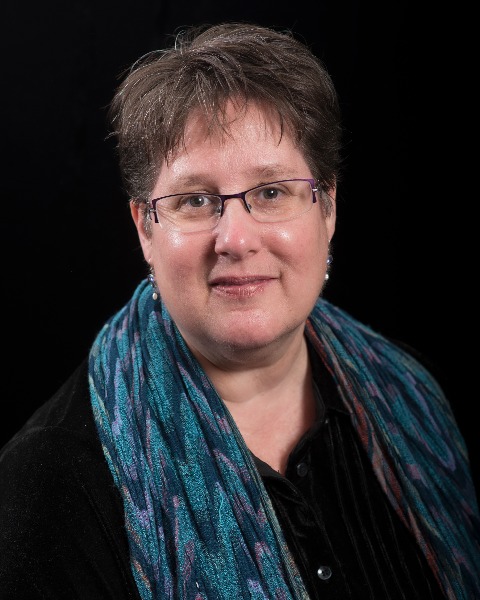Program Area: Behavioral and Social Sciences
Well-Being During the COVID-19 Pandemic: The Roles of Demographics, Personality, and Social Ties
-
LR
Lindsay Ryan, PhD, FGSA
Associate Research Scientist
Institute for Social Research
The University of Michigan
Ann Arbor, Michigan, United States -

Heather Fuller, PhD
Professor
Human Development and Family Science
North Dakota State University
Fargo, North Dakota, United States -

Aurora Sherman, PhD, FGSA
Associate Professor
School of Psychological Science
Oregon State University
Corvallis, Oregon, United States -
LR
Lindsay Ryan, PhD, FGSA
Associate Research Scientist
Institute for Social Research
The University of Michigan
Ann Arbor, Michigan, United States -
NN
Nicky Newton, PhD, FGSA
Associate Professor
Psychology
Wilfrid Laurier University
Waterloo, Ontario, Canada -
KB
Kira Birditt, PhD
Research Professor
Institute for Social Research
University of Michigan
Ann Arbor, Michigan, United States -

Katherine Fiori, PhD, FGSA
Professor
Derner School of Psychology
Adelphi University
Garden City, New York, United States -

Bryce Van Vleet, n/a
Graduate Research Assistant
Human Development and Family Science
North Dakota State University
Fargo, North Dakota, United States
Chair(s)
Co-Chair(s)
Discussant(s)
Individual Symposium Abstract First Author(s)
The COVID-19 pandemic continues to exert widespread impacts on individuals, particularly older adults (Tyrrell & Williams, 2020). This symposium capitalizes on a variety of data sources to advance our understandings of the psychosocial impact of the pandemic on older adults. The first two papers consider the importance of personality characteristics in understanding the effects of social distancing. Fiori et al. highlight the potential for sociability to act as a liability during times of social distancing, finding that sociability exacerbated the effects of social distancing on mental health outcomes in a sample of community-dwelling older adults. Ryan’s paper focuses on the Big Five Personality traits, age, and population density as key characteristics explaining differences in subjective well-being during the pandemic. Next, Van Vleet et al. apply a mixed-methods approach to investigate when older adults expect life to go back to normal, finding that expectations about the future became more positive with the passage of time. The final two papers consider the importance of adults’ home social context during the pandemic. Newton examines relationships between living alone and well-being outcomes among older Canadian women, finding that perceived COVID-19 impact was significant only at T1 and living alone was linked to poorer well-being by T2. Birditt et al. examine how individuals’ and partner’s COVID-19 stress and couples’ racial composition are related to affective experiences measured via ecological momentary assessments, finding that husbands’ stress impacted both partners’ well-being, and that associations differed by race. Sherman will lead a discussion to synthesize these new findings.
Learning Objectives:
- After attending this session, participants will be able to describe several psychosocial domains that are associated with well-being during the ongoing COVID-19 pandemic.
- After attending this session, participants will be able to discuss several theoretical perspectives proposed to explain key psychosocial and demographic predictors of well-being among older adults during the pandemic.
- After attending this session, participants will be able to describe a variety of methodological approaches and available data sources to investigate the impact of the COVID-19 pandemic on older adults.
Presentations:
-
10:00 AM – 11:30 AM ETWell-Being During the COVID-19 Pandemic: A function of Personality, Age, and Urbanicity
Individual Symposium Abstract First Author: Lindsay H. Ryan, PhD, FGSA – The University of Michigan
-
10:00 AM – 11:30 AM ETOlder Canadian Women's Living Arrangements and Well-Being During COVID-19
Individual Symposium Abstract First Author: Nicky Newton, PhD, FGSA – Wilfrid Laurier University
-
10:00 AM – 11:30 AM ETPandemic-Related Stress and Daily Well-Being Among Middle-Aged and Older Couples: Race and Gender Differences
Individual Symposium Abstract First Author: Kira Birditt, PhD – University of Michigan
-
10:00 AM – 11:30 AM ETThe Role of Sociability in Older Adults' Adaptation to COVID-19
Individual Symposium Abstract First Author: Katherine L. Fiori, PhD, FGSA – Adelphi University
-
10:00 AM – 11:30 AM ET“It's Going to be a New Normal”: Older Adults' Future Perceptions During COVID-19
Individual Symposium Abstract First Author: Bryce Van Vleet, n/a – North Dakota State University
